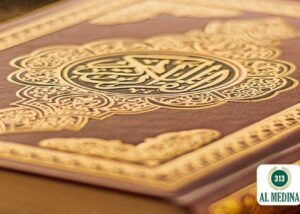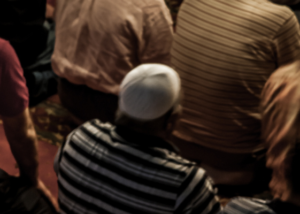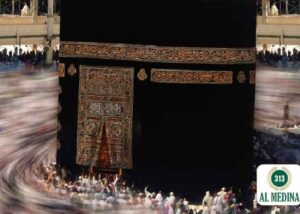A brother quoted leading scholars of the Hanafi Madhab saying Taraweeh is 8 Rakat, is this correct?
Quran
Hadith
Islamic Text
This is incorrect. The Hanafi position is that Taraweeh is 20 Rakah.
I have seen the brother’s comment and he mentioned that the following scholars believed Taraweeh to be 8 Rakah:
- Imam Ibn Abideen
- Imam Ibn Nujaym
- Imam al-Ayni
- Imam al-Shurunbulali
- Imam Ibn Humaam
- Imam Tahtawi (he said Tahaawi but clearly meant Tahtawi based on the book he referenced).
I believe most of these have been misrepresented. So, I will quote the position of each one of these scholars and other leading Hanafi authorities too.
(قَوْلُهُ وَهِيَ عِشْرُونَ رَكْعَةً) هُوَ قَوْلُ الْجُمْهُورِ وَعَلَيْهِ عَمَلُ النَّاسِ شَرْقًا وَغَرْبًا. وَعَنْ مَالِكٍ سِتٌّ وَثَلَاثُونَ. وَذَكَرَ فِي الْفَتْحِ أَنَّ مُقْتَضَى الدَّلِيلِ كَوْنُ الْمَسْنُونِ مِنْهَا ثَمَانِيَةً وَالْبَاقِي مُسْتَحَبًّا، وَتَمَامُهُ فِي الْبَحْرِ، وَذَكَرْت جَوَابَهُ فِيمَا عَلَّقْته عَلَيْه
His saying it (Taraweeh) is twenty Rak’ah: This is the opinion of the majority and the people act upon it in the east and the west. And it has been narrated at thirty-six Rakah from (Imam) Malik. And he (Ibn Humaam) mentioned in al-Fath that the evidence dictates that eight Rakah are the Sunnah and the remaining are Mustahab, it is discussed in al-Bahr and I answered it (his contention) in my footnote (on the text in al-Bahr). (Imam Ibn Abideen, Radd al-Muhtaar).
Imam Ibn Abideen’s quote on the text in Bahr is below:
وَأَمَّا تَضْعِيفُ الْحَدِيثِ بِمَنْ ذَكَرَ فَقَدْ يُقَالُ إنَّهُ اعْتَضَدَ بِمَا مَرَّ مِنْ نَقْلِ الْإِجْمَاعِ عَلَى سُنِّيَّتِهَا مِنْ غَيْرِ تَفْصِيلٍ مَعَ قَوْلِ الْإِمَامِ – رَحِمَهُ اللَّهُ – إنَّ مَا فَعَلَهُ عُمَرُ – رَضِيَ اللَّهُ عَنْهُ – لَمْ يَتَخَرَّجْهُ مِنْ تِلْقَاءِ نَفْسِهِ وَلَمْ يَكُنْ فِيهِ مُبْتَدِعًا وَلَمْ يَأْمُرْ بِهِ إلَّا عَنْ أَصْلٍ لَدَيْهِ وَعهد مِنْ رَسُولِ اللَّهِ – صَلَّى اللَّهُ تَعَالَى عَلَيْهِ وَسَلَّمَ – هـ فَتَأَمَّلْ مُنَصَّفًا
As for his saying the Hadith is weak, it is responded to by saying that the Hadith is supported by Ijma (scholarly consensus) upon it being Sunnah without opposition. As the Imam said, ‘Indeed what Umar done was not from himself, he was not an innovator regarding it and he would not command it without having a proof and authority from the Prophet ﷺ, so reflect justly.
As for Imam Ibn Nujaym, he discusses the issue in al-Bahr, however he doesn’t seem to take a definitive position. But he did take a clear position in his book al-Ashbah wa al-Nadhair.
وَالتَّرَاوِيحُ عِشْرُونَ رَكْعَةً بِعَشْرِ تَسْلِيمَاتٍ (الْأَشْبَاهُ وَالنَّظَائِرُ)
And Taraaweeh is twenty Rakah with ten Salaams. (Imam Ibn Nujaym, al-Ashbah wa al-Nadhair).
Imams al-Shurunbulali and al-Tahtawi are both very clear on the issue:
وهي عشرون ركعة” بإجماع الصحابة رضي الله عنهم (مراقي الفلاح شرح متن نور الإيضاح)
And it is twenty Rakah, by the Ijma of the Sahabah. (Imam al-Shurunbulali, Maraaqi al-Falah).
قوله: “وهي عشرون ركعة” الحكمة في تقديرها بهذا العدد مساواة المكمل وهي السنن للمكمل وهي الفرائض الاعتقادية والعملية (حاشية الطحطاوي على مراقي الفلاح)
His saying that it (Taraweeh) is twenty Rakah: The wisdom in this number is that it is equal the number of Fard (and Waajib) Rakah, and therefore that which completes (the Sunnah) is equal to that which needs to be completed (the Fard). (Imam al-Tahtaawi, Haashiyah on Maraaqi).
As for Imam al-Ayni he agreed with the text of al-Hidaayah in his commentary al-Binayah:
فيصلي بهم إمامهم خمس ترويحات في كل ترويحة بتسليمتين
فتصير الجملة عشرين ركعة وهو مذهبنا، وبه قال الشافعي وأحمد، نقله القاضي عن جمهور العلماء (البناية شرح الهداية)
al-Hidaayah: So the Imam prays five sets with them, and each set has two Salams.
Al-Binayah: So the total is twenty Rakah, and this is our Madhab. (Imam) al-Shafi and (Imam) Ahmad both said the same, and al-Qadi narrated that it is the opinion of he Majority of scholars. (Imam al-Ayni, al-Binayah).
It is clear from the above that the position of the Hanafi Madhab is twenty Rakah. It is also evident that these classical scholars have been misquoted.
As for imam Ibn Humaam, it is correct to say that he inclined towards another position, not that of the Madhab. This is not unprecedented for him, rather anyone who has studied his works will know that he does this at times.
فَتَحْصُلُ مِنْ هَذَا كُلِّهِ أَنَّ قِيَامَ رَمَضَانَ سُنَّةٌ إحْدَى عَشْرَةَ رَكْعَةً بِالْوِتْرِ فِي جَمَاعَةٍ فَعَلَهُ – صَلَّى اللَّهُ عَلَيْهِ وَسَلَّمَ – ثُمَّ تَرَكَهُ لِعُذْرٍ، أَفَادَ أَنَّهُ لَوْلَا خَشْيَةَ ذَلِكَ لَوَاظَبْت بِكُمْ، وَلَا شَكَّ فِي تَحَقُّقِ الْأَمْنِ مِنْ ذَلِكَ بِوَفَاتِهِ – صَلَّى اللَّهُ عَلَيْهِ وَسَلَّمَ – فَيَكُونُ سُنَّةً، وَكَوْنُهَا عِشْرِينَ سُنَّةُ الْخُلَفَاءِ الرَّاشِدِينَ وَقَوْلُهُ – صَلَّى اللَّهُ عَلَيْهِ وَسَلَّمَ – «عَلَيْكُمْ بِسُنَّتِي وَسُنَّةِ الْخُلَفَاءِ الرَّاشِدِينَ» نَدْبٌ إلَى سُنَّتِهِمْ، وَلَا يَسْتَلْزِمُ كَوْنَ ذَلِكَ سُنَّتَهُ. إذْ سُنَّتُهُ بِمُوَاظَبَتِهِ بِنَفْسِهِ أَوْ إلَّا لِعُذْرٍ، وَبِتَقْدِيرِ عَدَمِ ذَلِكَ الْعُذْرِ إنَّمَا اسْتَفَدْنَا أَنَّهُ كَانَ يُوَاظِبُ عَلَى مَا وَقَعَ مِنْهُ وَهُوَ مَا ذَكَرْنَا فَتَكُونُ الْعِشْرُونَ مُسْتَحَبًّا وَذَلِكَ الْقَدْرُ مِنْهَا هُوَ السُّنَّةُ كَالْأَرْبَعِ بَعْدَ الْعِشَاءِ مُسْتَحَبَّةٌ وَرَكْعَتَانِ مِنْهَا هِيَ السُّنَّةُ.
وَظَاهِرُ كَلَامِ الْمَشَايِخِ أَنَّ السُّنَّةَ عِشْرُونَ، وَمُقْتَضَى الدَّلِيلِ مَا قُلْنَا، فَالْأَوْلَى حِينَئِذٍ مَا هُوَ عِبَارَةُ الْقُدُورِيِّ مِنْ قَوْلِهِ يُسْتَحَبُّ لَا مَا ذَكَرَهُ الْمُصَنِّفُ فِيهِ. (فتح القدير)
So the upshot from all of this is that the Sunnah of prayer in Ramadan is eleven Rakah including the Witr, prayed in congregation as was practiced by the Prophet ﷺ and then he left it due to a particular reason. If there was no fear (of that reason) he would have continued upon it (praying eleven in congregation). With the passing of the Prophet ﷺ it became the established Sunnah. As for it being twenty, it is the Sunnah of the Khulafaa al-Rashideen and his (the Prophet’s ﷺ) saying, ‘follow my Sunnah and the Sunnah of the Khulafaa al-Rashideen,’ he ﷺ is encouraging us to follow their Sunnah, but it does not make it his (the Prophet’s ﷺ) Sunnah. Because his Sunnah is established by him practicing it regularly unless there is a reason not to. So, if the reason was not present, we believe that he would have continued upon what he practiced (eleven Rakah plus Witr), so twenty are recommended (Mustahab) and that amount (eight plus Witr) is Sunnah. This is similar to four Rakah after Isha being recommended, two of them are Sunnah.
However, what is evident from the statements of our scholars is that the Sunnah is twenty, but the evidence points to what I have said. So, in that case (Imam) Quduri’s statement is best, when he described it as Mustahab (recommended), not what the author (Imam al-Marghinani, author of al-Hidaayah) said regarding it (Sunnah). (Imam Ibn Humaam, Fath al-Qadeer).
So as seen above Imam Ibn Humaam recognises that the Imams of the Hanafi Madhab have said Taraaweeh is twenty Rakah Sunnah but he disagrees slightly. We should respect the opinion of Imam Ibn Humaam but should not confuse it with the opinion of the Madhab. The Hanafi Madhab is clear on this issue, Taraweeh is twenty Rakah.
In conclusion, it is important to understand why the Hanafi Madhab went with twenty Rakah, it has been explained well by Imam Ibn Abideen above. The fact that Sayidina Umar established twenty Rakah and the Sahabah agreed with him shows us that it is the right thing to do. We do not believe Sayidina Umar and the entirety (or majority) of the Sahabah opposed the Prophet ﷺ, such a claim would be incredibly problematic, the person making such a claim must take it back immediately. Why would any Sahabi oppose the Prophet ﷺ? Would someone as great as Sayidina Umar directly oppose the Prophet ﷺ? Why would all (or most) of the Sahabah agree with opposing the Prophet ﷺ?
It is absurd to make such claims, and the fact that people are making such insulting claims without clear evidence makes it even worse. The Ahl Sunnah venerate the Sahaabah greatly, and we do not believe that all (or most) Sahabah would ever oppose the Prophet ﷺ or agree on deviation. A single Sahabi can make a mistake but the entire Ummah does not agree on misguidance.
And Allah (Most High) Knows Best.
– Answered by Shaykh Noorud-deen (27.04.2021)
See also:
Is there evidence to prove Taraaweeh is twenty Rakah?
See also (video):






